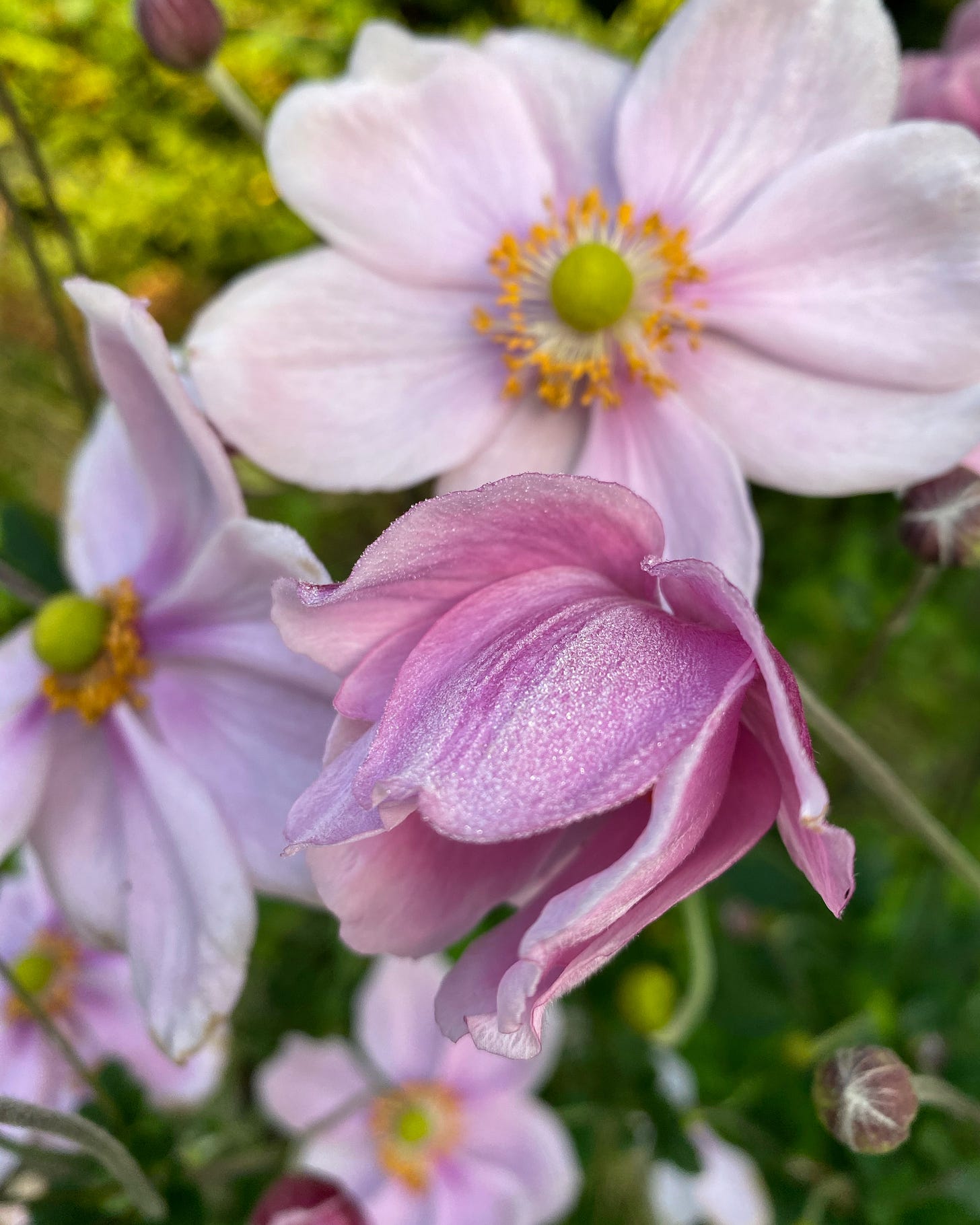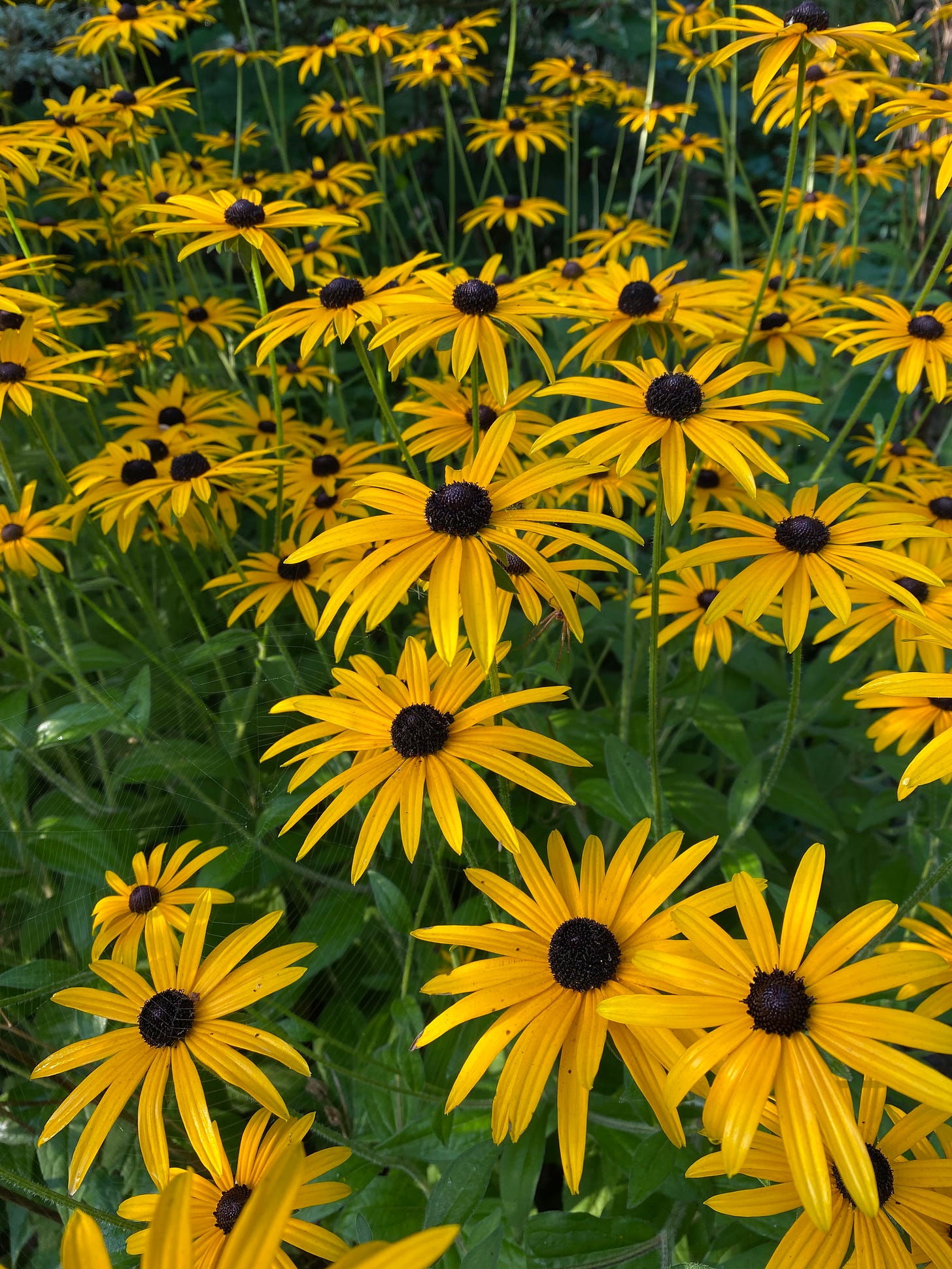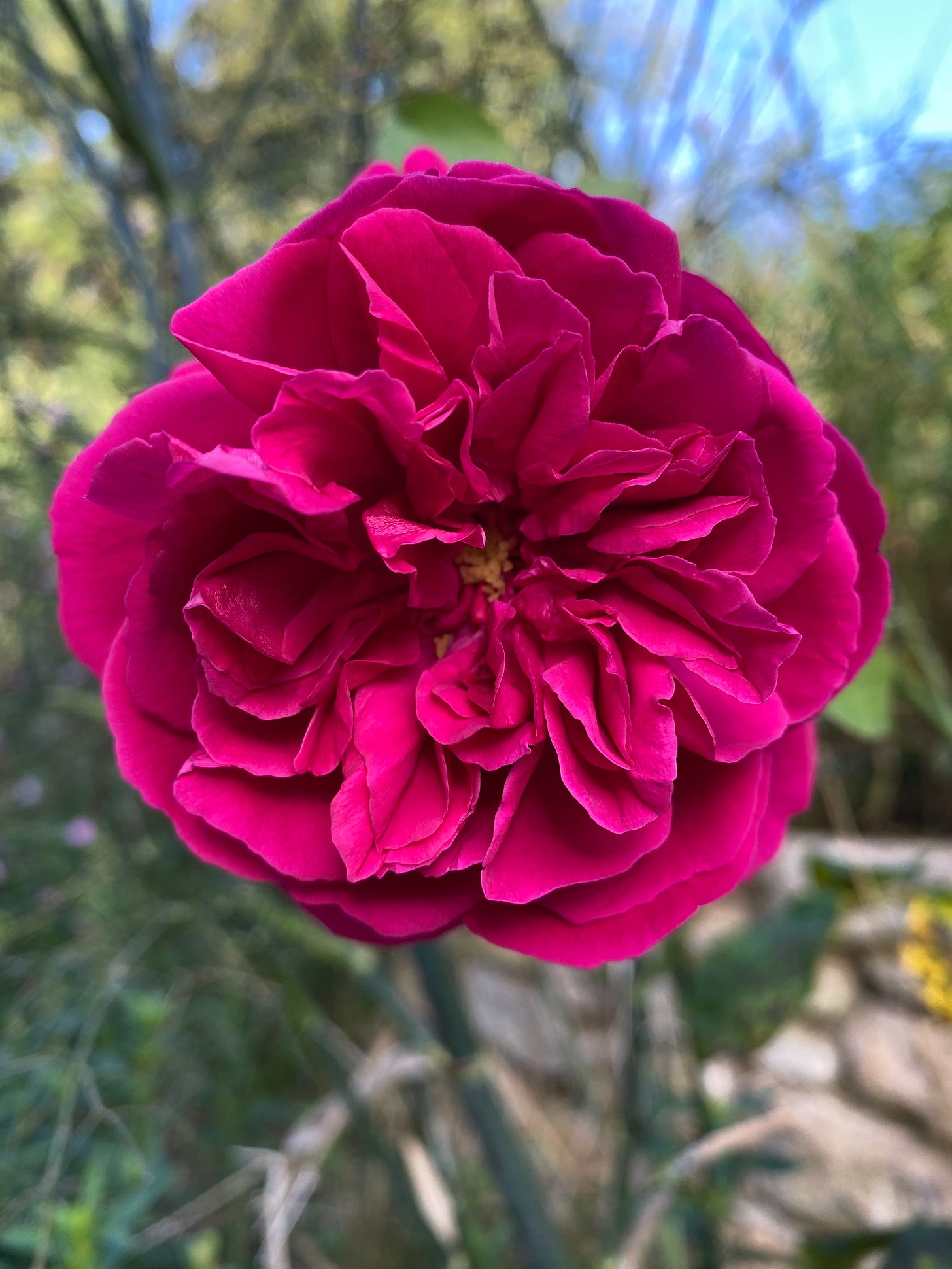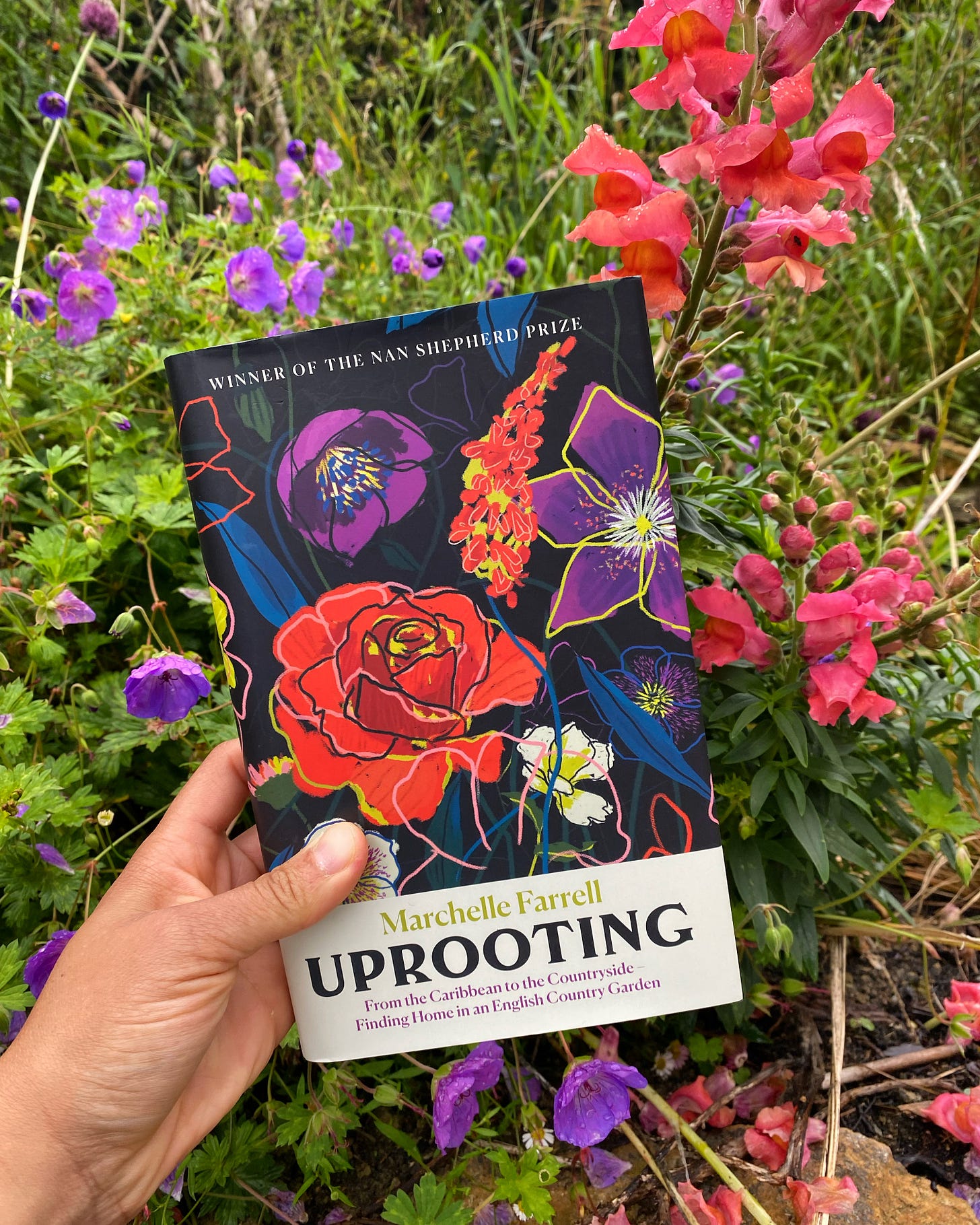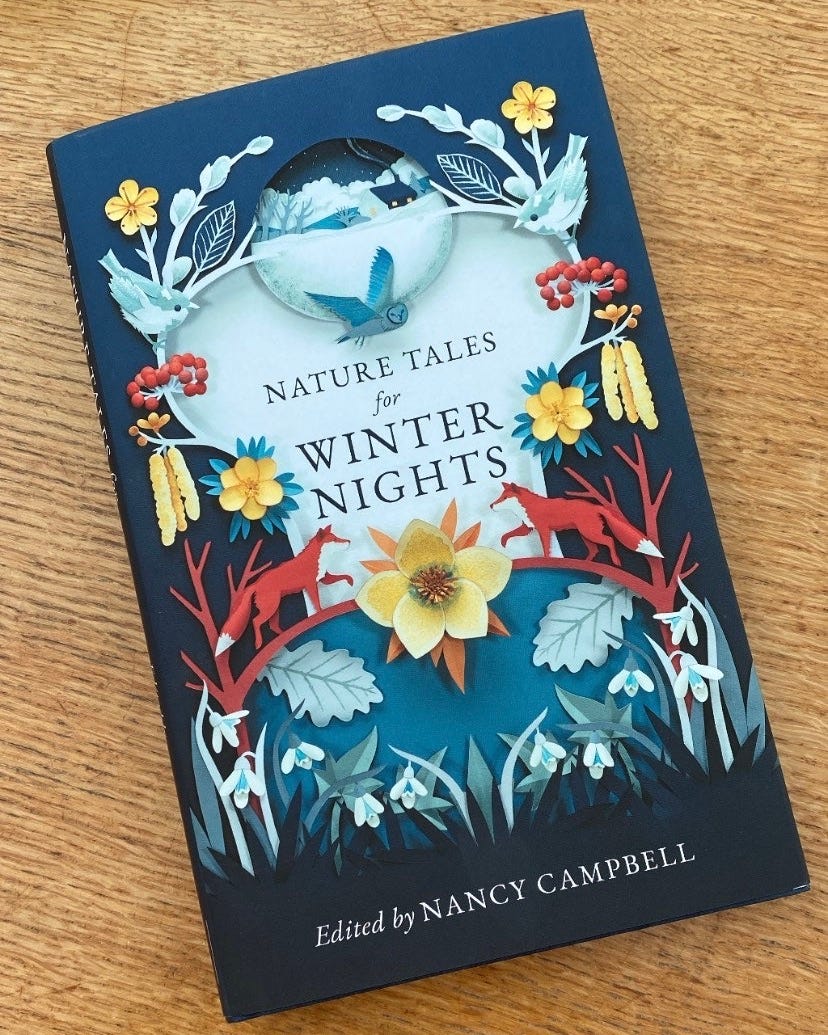But first, briefly…
I have had such a wonderful run of events since the publication of Uprooting, every one with its own delightfully unique feel. It has been a joy to begin to meet readers who have finished the book, and hear of the ways my words have entangled with their lives. It has been a source of deep nourishment.
For autumn, the events continue. I will be in lovely Totnes speaking about Uprooting at the Dartington Trust bookshop on Wednesday 4th October. And then on Friday 6th October, I’ll be at Cheltenham Literary Festival in conversation with Kate Humble about finding home. On Wednesday October 11th I’ll be closer to home ground, back at BookHaus Bristol speaking to Lucy Jones again, but this time about my own book. And on Sunday October 22nd I’ll be in London at the Design Museum’s Autumn Garden Assembly, which looks like a truly wonderful event to round out the month. Information about these, and about further upcoming events, can be found on my website. It would be a joy to see you at an event soon.
If you enjoyed my words in Uprooting, I’m really thrilled to have a small seasonal piece in a beautiful upcoming anthology called Nature Tales for Winter Nights edited by Nancy Campbell. It’s perfect for the lengthening nights to come.
It is the autumn equinox. A brief moment of equipoise; a slight pause, a mere breath in the hurtling onward momentum of the year. A moment that reminds me that the imbalance with which I teeter through my days is in fact the natural order of things. To seek balance is to pause for breath, and consider the overall pattern of our lives. What bigger picture am I painting with the momentary brush strokes of my days?
The garden paints a picture of growth, and of neglect. Of lush patches of the late flowering displays: sturdy rudbeckia, sparkling erigeron annuus and coral snapdragons that have flowered for months, echinacea that I have beheaded for tinctures, the last roses, prolific asters and vibrant Mexican hydrangea, a romp of nasturtiums. And of borders infiltrated by plants that I have not placed there and would like to remove even as I watch them go to seed. I plan to pull them out when I find the time. When I find the strength.
I have been imbalanced. I made it to 6 weeks after publication and found myself flattened. A virus to be sure, yet another variant of covid to which I had no doubt been exposed on my travels to promote the book. But blood tests at the end of summer had revealed the true cause of why I was so floored: I was anaemic, deficient. Prostrate in the dirt, I stared at the truth in the unruly borders. For months I had felt profoundly exhausted. In more despairing moments I had felt like I was dying; in a sense I was. I was a ‘haunted, pale shell of myself.’ My blood cells small and pale under the lens of a microscope in a lab, unable to do the job of perfusing my tissues, of fully oxygenating my cells. Severely low in iron, magnetism diminished, the steel of my spine crumbling.
I was bleeding out. I had written my heart into Uprooting. I had bled into the text.
To find myself depleted is to find myself in a familiar state even if this form of it is new. How to give of myself to others while allowing myself to be adequately nourished in turn is a quandary I have never steadily solved. I lurch in and out of balance with it. And yet brought to my knees on the soft earth of the garden in this moment of stillness before it tips towards autumn the answer lies in front of my face. A grasshopper lands on my head and chirps loudly into my right ear, the garden shouting its message at me. I brush it away with my hand and notice that my nail beds are clean. I had removed myself from the garden in the many hours of writing about it, and I am much the worse for that severing.
Is the garden worse off for my absence? It has been too brief yet to say; I have not neglected the space for long, or entirely. We have had a rich harvest from the veg beds. More beans than we could eat fresh, some left to dry on the plants, bright pink stems of chard beneath them. We eat many meals of potatoes, hang plaits of garlic in the kitchen above a row of squash. There is plenty of the kale that I crave, to eat with beetroot, and even a meal of steamed artichoke flowers. The garden is replete in the nourishment that I need.
Even in the veg beds there are more uninvited plants than I would desire, but when I sluggishly go to pull out a clump of willow herb I uncover two enormous elephant hawk moth caterpillars, startled by the patterns on their back that look like large eyes staring up at me. Inside the house, I find cocoons tucked under windowsills in almost every room. Lizards make their way into the conservatory; we guide butterflies, moths, wasps and damselflies out of it. We puzzle over new bees, bat our way through hoverflies, apply soothing cream to bites and stings. Gazing over the bottom of the garden with a cup of tea in the mornings, I watch a cloud of iridescence dance in the increasingly slanting beams of morning light. The garden rejects the notion of suffering, and I am taught another lesson in the healthy balance of control.
The equinox has passed. We are on the descent to the darkest days. I take my new supplements and sit with spiced teas in the sunshine to make the most of the light, and submit to the call to rest even as I sense my renewing strength. A season of quiet, of longer nights and slower days, of rich casseroles and dark, nourishing stews is precisely what I need. The garden’s visible growth will die back while strong roots continue to form unseen through the darker half of the year. My outward effort slows as in the dark marrow of my bones the work of replenishment is done. My imbalance matches the world around me. Of course it does, I am not severed, I am seamlessly woven into the world around me. This is the big picture of our days.



